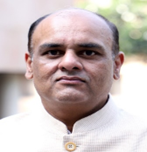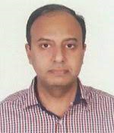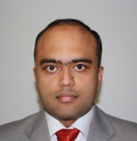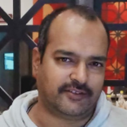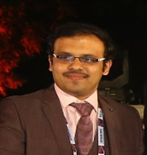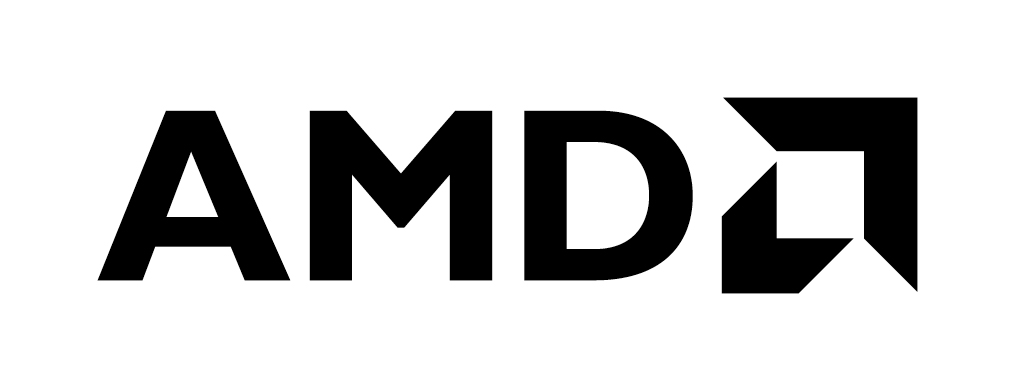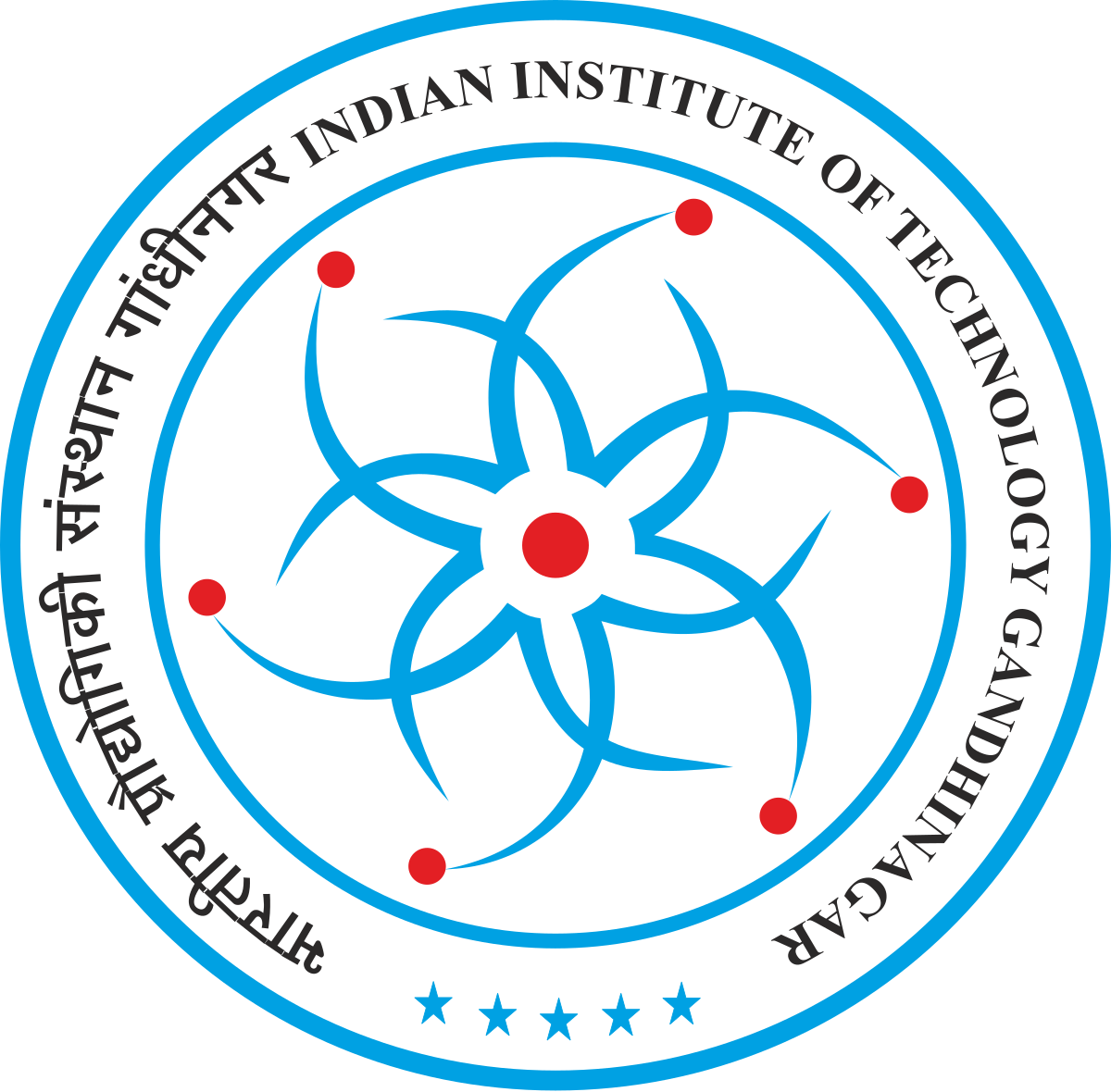Panelists:
Panelist 1: Prof Brejesh Lall, IIT Delhi
Bio: Prof Brejesh Lall completed PhD in 1999 from IIT Delhi in the area of Multirate Signal Processing. He joined Hughes Software Systems in September 1997 and worked there for nearly 8 years in the Signal Processing group. He worked on Source Coding and PHY layer solutions for many communication technologies such as terrestrial wireless, GEO and LEO Satellite communication systems, Satellite broadband and others.
He returned to his alma mater and joined IIT Delhi as a faculty member in 2005. Since July 2005 He has been in the Electrical Engineering Department and has contributed to research & teaching in the general area of Signal Processing. The areas in which he has been publishing and doing sponsored research are centered on signal processing. The areas include, object representation, tracking and classification, odometry, depth map generation, representation, and rendering. He is also exploring vector sensor based underwater acoustic communications, and performance issues in molecular communications.
He is presently professor Electrical Engineering Department and has earlier served as the head of Bharti School of Telecom Technology and Management at IITD, and the coordinator of two centers of excellence, viz. Airtel IIT Delhi Centre of Excellence in Telecommunications and Ericsson IIT Delhi 5G Center of Excellence. He is also the incharge of an IoT laboratory that he set up in collaboration with Samsung. He is also the Co-PI of the Project “Building an end-to-end 5G Test Bed” funded by DoT.
He has mentored 5 startups, in the areas of Virtualization, Geo-fencing, UAV based solutions and recommendation and data mining. He actively participates in building and deploying technology. He has also served as an expert in numerous government and private agencies in aspects related to signal processing.
Panelist 2: Dr Pradipta Biswas
Bio: Dr Pradipta Biswas is an Associate Professor at the Centre for Product Design and Manufacturing and associate faculty at the Robert Bosch Centre for Cyber Physical Systems of Indian Institute of Science, Bangalore. He has been elected as a vice chairman of ITU Study Group 9 and a Co-Chair of the IRG AVA and Focus Group on Smart TV at International Telecommunication Union. He is a member of the UKRI International Development Peer Review College Association of Computing Machinery (ACM) and was a professional member of the Society of Flight Test Engineers British Computer Society, Associate Fellow at the UK Higher Education Academy and Royal Society of Medicine.
Panelist 3: Mr Pranav Jha
Bio: Pranav Jha works with IIT Bombay, Mumbai, India as a Senior Scientist. His current research interest lies in Broadcast-Broadband Convergence, Rural Broadband Communication and Network Architecture for 5G & beyond. He is an active participant in the development of telecom standards and contributes to IEEE, 3GPP, TSDSI, and ITU standardization efforts. He also chairs two IEEE working groups, IEEE P1930.1 and IEEE P2061.
Panelist 4: Dr Sachin Chaudhari
Bio: Dr. Sachin Chaudhari received his B.E.(Electronics) from Visvesvaraya National Institute of Technology (VNIT), Nagpur, India in 2002; M.E.(Telecommunication) from the Indian Institute of Science (IISc), Bangalore, India in 2004 and his D.Sc. (Tech) from Aalto University (formerly TKK), Finland in 2012. Between August 2004 and May 2007, he was with Esqube Communications, Bangalore, India, as a senior wireless communication engineer. During 2013-2014, he was a post-doctoral researcher at Aalto University. He joined the International Institute of Information Technology (IIIT), Hyderabad, India in Dec. 2014, where he is currently an Associate Professor.
Sachin’s research interests are in the field of signal processing and machine learning for wireless communication and particularly, in the physical layer aspects of the internet of things (IoT), 5G, and cognitive radio. He is a senior IEEE member and the representative of IIITH to the Telecommunication Standards Development Society of India (TSDSI). He is the coordinator of the Center of Excellence on IoT for Smart Cities at IIITH, which is supported by the India-EU collaboration project, ETSI, and TSDSI. He is also actively involved in India’s First Living Lab for Smart City Research at IIITH.
Panelist 5: Dr Vireshwar Kumar
Bio: Dr Vireshwar Kumar is an Assistant Professor in the Department of Computer Science and Engineering at Indian Institute of Technology (IIT) Delhi. He also works closely with Bharti School of Telecommunication, Khosla School of Information Technology and Center of Excellence in Cyber Systems and Information Assurance at IIT Delhi. He received his B. Tech. in Electrical Engineering from IIT Delhi and Ph.D. in Computer Engineering from Virginia Tech. University. Before returning to IIT Delhi, he worked as a Postdoctoral Research Associate in the Department of Computer Science at Purdue University. His research interests include anatomizing the communication protocols employed in cyber-physical systems for security and privacy vulnerabilities, and then mitigating them with innovative defense mechanisms.
Panelist 6: Mr Debashis Mitra
Bio: Debashis Mitra is an Electrical Engineer by training, having done his B.TECH (five year) in 1984 from IIT, Delhi, he joined the IT industry when it was just taking off in India. He then completed his master’s in software systems while working. He has worked with numerous global organizations in the US, UK, Japan along with “Navratans” of India on various Networking Telecommunications projects such as with Lucent Technologies, British Telecom, Radiometer, ONGC, NTT Soft, NEC, Toyo Engineering, NCL Communications in Japan. He specially remembers his work as an young engineer in the late eighties to early nineties in Japan when Indian IT was relatively unknown in the country. He had to learn to speak Japanese for communicating at the workplace. Japan is his abiding interest he calls it his second home country.
After Japan he returned to work in India with Tata Consultancy Services till 2021 end. In this organization, he donned several leadership hats in Technology, Architecture, Tools, Delivery Programs, including at geography levels. He finally culminated his efforts at TCS by leading its global program in Standards bodies including Industry Forums. During his watch, TCS participation in Standards bodies jumped to another level. It renewed its global leadership at ISO in Software Engineering standards. It increased participation by an order in various BIS mirror committees for ISO. These were in AI, AI Ethics, Data, Security, Data Privacy, IOT. Likewise, it increased contributions to TSDSI, the Indian telecommunications standards org. It also increased IEEE-SA participation.
He is currently the Professor of Practice at IIT Delhi Bharti School of Telecommunications.
Moderator: Dr. Arzad Alam Kherani
Bio: Dr. Arzad Alam Kherani is currently Associate Professor (Department of Electrical Engineering and Computer Science) at IIT, Bhilai. He has worked on broad areas of Computer networks, Queueing systems, Wireless communications. He has also worked for industry for a decade and gained experience with product conceptualization, product design and development, industrial R&D and standardization. He did Master’s in 1999 and PhD in 2003 from IISc Bangalore.
Moderator: Dr. Sk Subidh Ali
Bio: Dr. Sk Subidh Ali is an Assistant Professor in the Department of Computer Science and Engineering, Indian Institute of Technology Bhilai, since December 2017. Prior to that, he was working as an Assistant Professor in Department of Computer Science and Engineering, Indian Institute of Technology Tirupati. He did his Postdoctoral Research in the Department of Computer Science and Engineering, New York University Abu Dhabi. He earned his Ph.D. degree from the Department of Computer Science and Engineering, Indian Institute of Technology Kharagpur, India, in 2013. His primary research interest is in side-channel cryptanalysis.
Moderator: Dr. Soumava Mukherjee
Bio: Dr.Soumava Mukherjee (Member, IEEE) was born in Kolkata, West Bengal, India, in May 1987. He received the B.Tech. degree in electronics and communication engineering from the West Bengal University of Technology, in 2009, the M.E. degree in electronics and telecommunication engineering from Bengal Engineering and Science University, Shibpur (BESUS), in 2011, with specialization in microwave and communication engineering, and the Ph.D. degree from the Department of Electrical Engineering, IIT Kanpur (IITK), in 2016. Since 2016, he has been an Assistant Professor with the Electrical Engineering Department, IIT Jodhpur, Jodhpur, India. His current research interests include substrate integrated coaxial line antennas and circuits, substrate integrated waveguide (SIW) antennas, multifrequency and broadband antennas, and chipless RFID. Dr. Mukherjee was a recipient of the European Microwave Student Grant in EuMC 2013 and EuMC 2014. He also received the International Travel Grant from the Department of Science and Technology (DST), Government of India. He is also a recipient of the Young Scientist Award AP-RASC-2019 (URSI Asia-Pacific Radio Science Conference) instituted by the International Union of Radio Science. He is also a Reviewer of potential journals like IEEE TRANSACTIONS ON ANTENNAS AND PROPAGATION, the IEEE ANTENNA WIRELESS PROPAGATION LETTERS, IEEE ACCESS, IET Microwaves, Antennas and Propagation (IET MAP), U.K., IET Electronic Letters, U.K., and IET Journal of Engineering, U.K.



